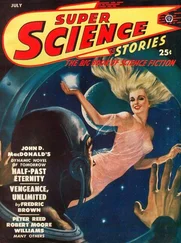“Could she have friends in academic circles, people who would know about what she did at Minnesota, and not have it make any difference?”
“No. It’s a small, careful world. An insurance executive would not risk being friendly with a convicted arsonist. The relationship would be too open to misinterpretation. And there wasn’t any two sides to the case. She was nailed. Also, I guess you’ll have to admit she isn’t the sort of person to inspire loyal friendship. She has all the personality of a snapping turtle. But she’s got a fine mind. I used to go out there and talk to her. We got along. She was at ease with me because I knew what had happened to her, and nobody else in town did. She’s made her own kind of adjustment, Wing. It would be very nice if she could be left alone.”
“I can understand why she doesn’t talk about the past.”
“People still wonder about her. I was at a conference in Atlanta last year. When a biologist from Johns Hopkins heard where I went to school he asked me if I was there when they trapped the Hegasohn woman, and then he wondered out loud what had become of her. I didn’t tell him. You could make a story of it, Wing. It would be, in a different sense, like those reviews of famous crimes of the century. But it wouldn’t be a decent thing to do.”
“Thank you for being so cooperative, Mr. Willihan.”
“Remember one thing, please. She’s a clever woman. She’s clever enough to have been able to fake her way back into the profession with a new identity. But she didn’t. She accepted banishment. She made a moral decision to live with it. I have to respect that.”
“She’s been doing odd jobs for marine biology groups working in the area.”
Willihan frowned. “They’d be upset to find out who has been helping them. Even though it might be a perfectly straightforward relationship, if it came out it would cast a shadow on whatever they’re publishing. I know how ridiculous that sounds, Wing, but every profession has its own stupidities. Research programs are conducted with the assistance of grants from foundations and institutions. Boards of directors are too easily alarmed. They’d be dubious about backing any further work on a project where Doris Hegasohn had been involved, even if the only employment they gave her was brewing tea for the field workers. I suppose they think of her and use her as a trustworthy layman.”
“I guess that’s the relationship.”
“Can you stay and have lunch with me?”
“Thanks, no. I have to be getting back.”
Willihan smiled as he stood up and held his hand out. “I don’t know why I have to feel so protective about that fat old harridan. I think she liked me. You usually like the people who like you. And that, I suppose, is just one of the general forms of stupidity.”
Jimmy Wing went from the waterfront offices of Stormer and Willihan to the St. Petersburg Times offices. He checked the annual index for 1939, and then viewed the microfilm projections of the pertinent dates. He jotted down the dates and page numbers involved, and left an order with the library girl for photocopies, paying in advance for reproduction and mailing charges.
As he drove south in the heat of midday, he found himself remembering a flight down the coast in a private airplane three years back. He often remembered it as he drove the Tamiami Trail. Jimmy had been on the port side of the four-passenger aircraft, directly behind the pilot. The sun had been setting as they left Tampa International. The pilot flew at five thousand feet about a mile offshore, following the contour of the coast. The great dark mass of the silent land stretched off toward the east, toward an invisible horizon. The Gulf was a silvery gray and the land was blue-gray. Stretching all the way down the coast, almost without interruption, was the raw garish night work of man, the crawl of headlights, bouquets of neon, sugar-cube motels, blue dots of lighted pools. When the trip was almost over, just before the plane turned inland to land at Palm County Airport, Jimmy Wing had seen it all in a fanciful way which he had never been able to get out of his mind. The land was some great fallen animal. And all the night lights marked the long angry sore in its hide, a noisome, festering wound, maggoty and moving, draining blood and serum into the silent Gulf. Now Doris Hegasohn Rowell had given him a name for it. The plague of man. The sore was spreading. The dark earth endured this mortal affliction. Dead bright junk circled the moon, orbited the planet, hundreds of bits of it. Every living vertebrate, from a newborn rhino to a white-muzzled chipmunk, carried radioactive material in its bone marrow. Men were digging burrows in the ground, hiding away food and water, waiting for the skies to scream, for the earth itself to shudder, die and begin to rot.
In all this, he thought, in all this which diminishes me, no act of mine, or of anyone else, has consequence. Morality is a self-conscious posture. Dedication is delusion, based on a fraudulent interpretation of fact, a wishful projection of our present velocity. The only valid role is that of observer. Soon we will all eat stones.
He turned into the parking lot at the bank just as Kat was walking toward her little car. The lot was almost empty. He touched the horn ring. She turned and stared, then came swiftly toward him, such a smiling welcome on her face his heart seemed to move higher in his chest.
She looked in the car window at him. “Golly, Jimmy, I’ve been saving up so many things to talk to you about, I know I’m going to forget half of them.”
“How was yesterday? You have a very red nose.”
“And my forehead is getting crusty, and I have ten billion little pinhead blisters on my back and shoulders. Yesterday was okay. It got bad a couple of times. When it did, I’d run into the water and swim as hard as I could as far as I could. So along with the blisters, I’m lame. Where were you today?”
“Working on that feature I told you about.”
“Are you busy now?”
“Later would be better.”
“I promised Jackie I’d do two hours on the phone as soon as I get home. Can you come out about six and have a drink and stay to dinner?”
“Sure. What’s going on?”
“Dozens of things, most of them bad. I want to tell you all of it, not just bits and pieces.”
He arrived at her house at a little after six. She was in shorts and a halter, her sore back and shoulders greased. “Excuse how I look,” she said. “Clothes hurt. And excuse how I sound. I’m hoarse from arguing and arguing over the phone. Jackie and Ross are coming to dinner too, but they won’t be here until after seven. Now, sit down and I’ll get your drink and I’m going to talk you blind.”
She told him about Dial Sinnat quitting. She told him somebody had gotten at Dial through Natalie. It surprised him that Elmo had been able to move so quickly and effectively. It puzzled him that it had worked at all. Kat gave no details about Natalie. She merely said, “The girl did something that could be made to look pretty awful.”
For a few moments his mind wandered. He did not hear what she was saying. He realized she was looking at him expectantly.
“I know it’s a lot to ask of you, Jimmy.”
“Sorry, dear. I wasn’t tracking. What are you asking me to do?”
“Find out who is being so ugly about all this! Somebody spied on Nat, Jimmy. And two men talked to Di on the phone and scared him right off the committee, and he didn’t recognize the voices of either of them. You know everybody, Jimmy. If you could find out who is being so terribly rough, maybe we could do something about it. Couldn’t you sort of ask around, in a quiet way?”
“But people know I was on your side last time, and they know it will be the same again. If I start asking questions, why should anybody answer me?”
Читать дальше
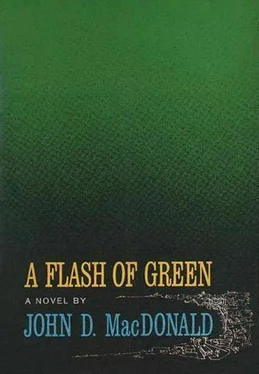
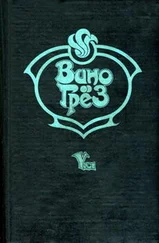
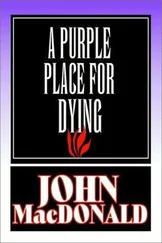

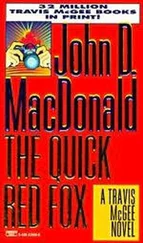
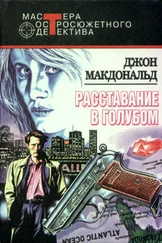




![Джон Макдональд - Wine of the Dreamers [= Planet of the Dreamers]](/books/430039/dzhon-makdonald-wine-of-the-dreamers-planet-of-thumb.webp)

